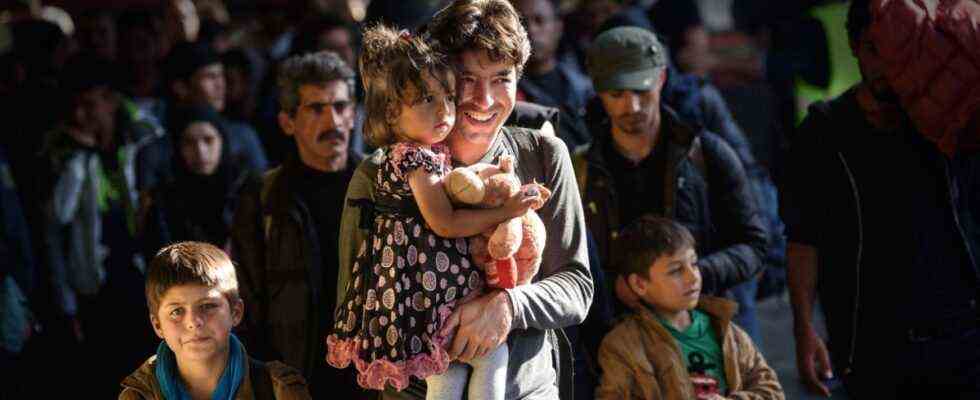She wants to “shape a new beginning in migration and integration policy”, a “paradigm shift”, writes the budding government. And in fact, some refugee organizations are already celebrating what can be read from page 137 of the coalition agreement on six pages as the asylum change. “There is almost everything that we asked for,” says Stephan Reichel from the church refugee organization Matteo. Günter Burkhardt, managing director of Pro Asyl, also sees great progress, if not in all areas.
In short, cutting sentences, the traffic light does away with the rigors of the previous government’s asylum policy: “The Federal Government is not pursuing the concept of anchor centers,” is a sentence that buries the large collective accommodation invented by Horst Seehofer. The Federal Minister of the Interior wanted to use the anchor centers to accelerate deportations. The fact that children did not attend school there for the first six months was just as accepted as the fact that the large homes with their lack of prospects and the unrest of the nocturnal deportations traumatized many a refugee again. At Pro Asyl, however, they are disappointed that the length of stay in collective accommodation should not be limited again by law. Previously a maximum of three months was allowed, now it is up to 18.
Basically, however, the new coalition no longer wants anchor centers, just like deportation detention for children and adolescents and chain tolerances – those waiting loops in which people are often stuck for years when they cannot be deported, but are also not allowed to arrive. The new coalition has thrown one stimulus word after the other about asylum policy overboard.
“Finally the basic right to a family is being reinstated”
Family reunification for subsidiary artillery is also one of them. After the large influx of 2015, refugees, for example from civil war countries, were only allowed to bring their relatives to a very limited extent. That will be abolished. Parents who follow children who have fled alone should also be able to take their other siblings with them. If you want to go to a spouse in Germany, you no longer have to meticulously prove your German language skills in advance. These are a few lines that should end some of the suffering of families who have been separated for years. “Finally the basic right to a family is being reinstated,” says Günter Burkhardt.
The real paradigm shift, however, is evident in integration policy. Migrants should be helped to arrive in Germany more quickly. And this – and this is new – regardless of their actual chances of asylum. For example, there will be German courses for everyone who comes to Germany right from the start. And the same applies in the world of work: whoever is here should also work. “We are abolishing work bans for those already living in Germany,” says the coalition agreement.
This is likely to turn the practice of some immigration authorities on its head: So far, in Bavaria in particular, attempts have been made to keep rejected asylum seekers – and also those with poor asylum opportunities – as far as possible from work and integration, precisely so that they do not “solidify” their stay. Work was often banned long before the actual deportation. Some of the migrants were stuck in the collective accommodation for months or years.
“That is humanistic, that is Christian, and that is also economically sensible”
A different spirit now sounds from the new coalition agreement: Those who are here should also take something away from this time, which could apply in the future. Integration from day one, whether the migrants stay or not. “It’s humanistic, that’s Christian, and it’s also economically sensible,” says Stephan Reichel from the Matteo organization. The Ampel-Coalition makes it absolutely clear that not everyone who comes to us can stay. Rather, she wants to start a “repatriation offensive” “in order to implement emigration more consistently, in particular the deportation of criminals and those at risk.”
Mainly, however, the new government is planning a humanitarian and at the same time pragmatic policy. This is possible because the parties to the traffic light in asylum policy want almost the same thing – albeit for different motives. The humanitarian concerns of the SPD and the Greens meet here in a positive way with the liberal attitudes of the FDP to immigration law and the opening of the labor market for migrants. So it is possible that these three parties, in great unity, want to accelerate the issuing of visas or give hard-working and well-integrated migrants a right to stay more quickly. And so it is at least also conceivable that, as announced, they will initiate a “coherent, consistent immigration law”.

